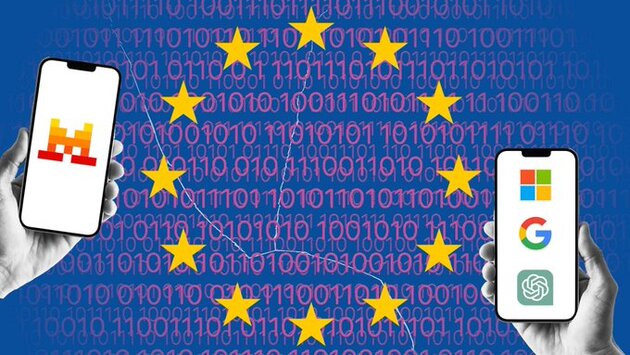
Can Europe Break Free of American Tech Supremacy?
Efforts to achieve Europe tech independence have grown louder as countries across the continent assess their reliance on American giants like Google, Apple, Meta, and Amazon. Whether it’s through local data sovereignty laws, funding for domestic startups, or investments in next-gen chips and cloud infrastructure, the European Union is signaling it wants a more self-sufficient tech future. But how realistic is a shift away from U.S. dominance in software, hardware, and artificial intelligence?
Why Europe Tech Independence Is a Strategic Priority
For decades, American firms have maintained an outsized presence across Europe’s digital economy. From mobile operating systems to cloud storage, U.S. companies control much of the continent’s tech stack. This dependency has raised serious concerns about digital sovereignty, national security, and economic competitiveness. In response, the EU has launched initiatives like the Digital Markets Act and Digital Services Act, aiming to curtail Big Tech power while promoting fairer access to markets for European alternatives.
Challenges Europe Faces in Building Its Own Tech Ecosystem
While the ambition behind Europe tech independence is clear, the path to achieving it remains complex. Europe lacks homegrown equivalents to U.S. hyperscalers, and many of its most promising startups end up being acquired by foreign firms. Talent shortages, fragmented regulations, and limited venture capital further complicate growth. Moreover, consumer habits often favor established platforms, making it hard for European tech to scale quickly or compete globally without heavy subsidies or alliances.
Steps Europe Is Taking to Secure Its Digital Future
To shift the balance, Europe is investing in semiconductor production, supporting open-source AI models, and pushing for interoperable systems. Countries like Germany and France are leading the charge with strategic funding for cloud projects such as GAIA-X. The European Commission is also exploring how to keep more tech value chains within EU borders. While the road ahead is long, ongoing policy and innovation efforts are laying the groundwork for a more resilient, self-reliant digital landscape.
The Future of Europe Tech Independence
Total independence may not be achievable in the near term, but a hybrid model of cooperation and strategic autonomy seems more likely. Europe doesn't need to isolate itself from American tech—it needs to ensure it has control over critical infrastructure, access to its own data, and the ability to shape its digital destiny. That vision of Europe tech independence—one built on resilience rather than isolation—could redefine global tech leadership in the years ahead.
𝗦𝗲𝗺𝗮𝘀𝗼𝗰𝗶𝗮𝗹 𝗶𝘀 𝘄𝗵𝗲𝗿𝗲 𝗿𝗲𝗮𝗹 𝗽𝗲𝗼𝗽𝗹𝗲 𝗰𝗼𝗻𝗻𝗲𝗰𝘁, 𝗴𝗿𝗼𝘄, 𝗮𝗻𝗱 𝗯𝗲𝗹𝗼𝗻𝗴. We’re more than just a social platform — from jobs and blogs to events and daily chats, we bring people and ideas together in one simple, meaningful space.